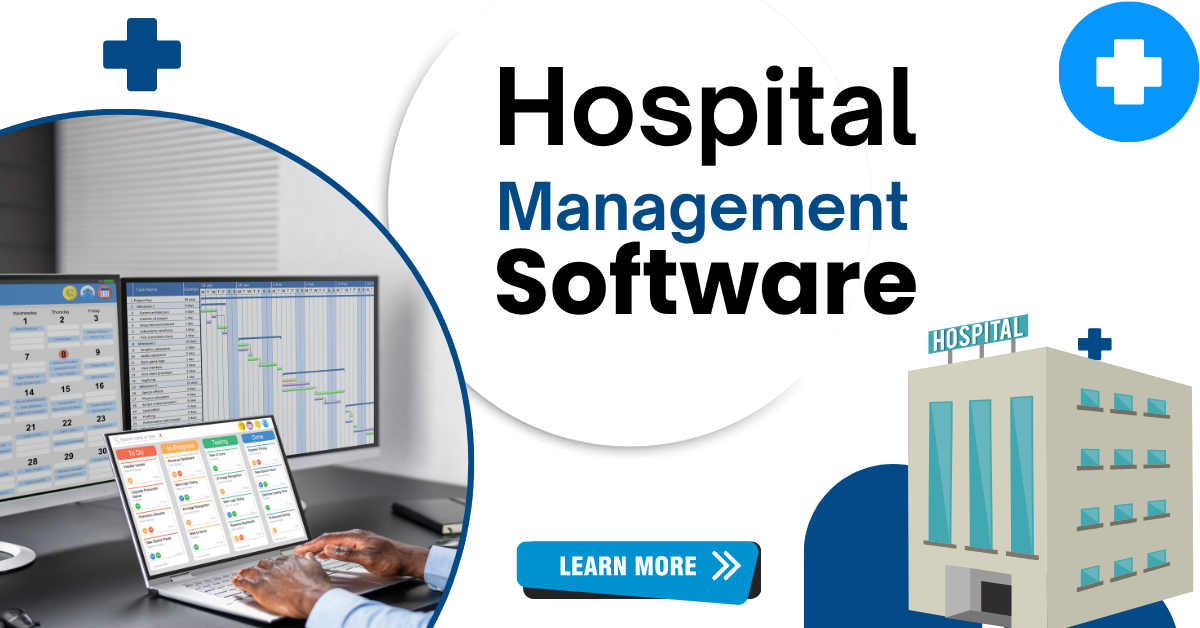The Ultimate Guide for Hospital Management Software in USA
In today’s fast-evolving healthcare landscape, adopting digital solutions has become more than a necessity; it’s a strategic imperative. Hospital Management Software has emerged as a crucial tool for enhancing operational efficiency, improving patient outcomes, and streamlining administrative processes across healthcare facilities in the United States. From large hospital chains to mid-sized clinics, the demand for powerful, reliable, and user-friendly management systems continues to surge.
Whether you’re a healthcare administrator, an IT consultant, or a medical practitioner, understanding the capabilities and benefits of Hospital Management Software can significantly influence the success and sustainability of your operations. This comprehensive guide explores the top solutions available in the U.S. market, diving deep into their core functionalities, advantages, and strategic importance for modern-day medical facilities.
Streamlining Healthcare: The Rise of Hospital Management Software in the U.S.
The U.S. healthcare system is complex, dynamic, and under constant pressure to deliver efficient and patient-centered care. Hospital Management Software has risen as a technological cornerstone, transforming how hospitals operate in both clinical and non-clinical areas.
- The shift toward digital transformation in healthcare began with the widespread adoption of Electronic Health Records (EHRs), eventually paving the way for comprehensive management platforms.
- These software systems are now integrated into every facet of hospital administration—from billing and scheduling to diagnostics and supply chain logistics.
- The COVID-19 pandemic further accelerated the need for integrated digital solutions that could support telemedicine, remote monitoring, and data-driven decision-making.
- Healthcare providers are now prioritizing investments in Hospital Management Software to maintain regulatory compliance, reduce costs, and enhance overall patient satisfaction.
Why Every Modern Hospital Needs a Reliable Management System
Hospitals that invest in robust Hospital Management Software gain a competitive edge in service delivery and operational control. The growing patient demands, coupled with regulatory complexities, make it essential for modern hospitals to adopt these solutions.
- Real-time access to patient information and historical data ensures better clinical decisions and reduces medical errors.
- Workflow automation helps hospital staff manage appointments, laboratory workflows, inventory, and invoicing more efficiently.
- Comprehensive reporting and analytics tools help executives and department heads identify trends, manage resources, and forecast patient demand.
- Security and data integrity are significantly enhanced with enterprise-level solutions that adhere to federal compliance standards like HIPAA.
What Is Hospital Management Software and Why It Matters
Hospital Management Software is a comprehensive digital solution designed to centralize, streamline, and automate the operations of hospitals and medical centers. It is not merely a tool for digital record-keeping but an integrated system that covers administrative, financial, and clinical functions within a single interface. These platforms typically offer a wide range of modules, including patient registration, appointment scheduling, billing and insurance management, pharmacy management, laboratory data, and electronic medical records.
The significance of these systems lies in their ability to minimize manual tasks, improve data accuracy, and provide real-time information to healthcare providers. In a high-stakes environment like healthcare, where decisions must be quick and well-informed, the value of such systems cannot be overstated. By reducing redundancy and ensuring seamless communication across departments, Hospital Management Software enables hospitals to deliver better care while optimizing operational costs.
Core Features to Look for in a Hospital Management Software System
When evaluating a Hospital Management Software solution, healthcare organizations must consider a variety of critical features that align with their unique operational needs. These systems should provide an intuitive and customizable dashboard that allows users to navigate between different departments effortlessly. Moreover, integration with Electronic Health Records (EHR) is essential to ensure smooth data exchange between clinical and administrative units.
Another key feature is multi-location support, especially for hospital groups and franchises that operate across several states. The ability to generate customized reports and access real-time analytics provides valuable insights into hospital performance and patient trends. Additionally, these systems should support insurance claims processing and billing automation to reduce administrative burdens and improve revenue cycle management. Scalability and vendor support are also important considerations to ensure long-term reliability and adaptability.
Top Benefits of Hospital Management Software for Healthcare Facilities
- Improved workflow automation, allowing for faster service delivery and reduced human errors.
- Enhanced patient care through real-time access to medical history, diagnostic data, and treatment plans.
- Streamlined billing and revenue management, minimizing payment delays and improving cash flow.
- Better regulatory compliance with HIPAA and other federal guidelines for data security and patient confidentiality.
- Efficient inventory and asset management, helping reduce waste and control costs.
- Improved communication between departments, reducing delays in patient treatment and administrative bottlenecks.
1. Epic Systems – A Leader in Scalable Hospital Management Software
Epic Systems is widely recognized as one of the most reliable and scalable Hospital Management Software solutions in the U.S. With a strong presence in both large academic medical centers and smaller hospitals, Epic offers a fully integrated platform that supports clinical, operational, and financial functions. Its emphasis on interoperability and patient-centric design makes it a preferred choice for many health systems aiming to provide coordinated, value-based care.
2. Cerner Millennium – Enhancing Hospital Efficiency Nationwide
Cerner Millennium is a robust, cloud-enabled platform that delivers a holistic approach to hospital management. Known for its powerful analytics and population health capabilities, Cerner helps healthcare institutions deliver more efficient, personalized care. Its user-friendly interface and modular design allow organizations to tailor the system to their unique workflows without compromising functionality or data integrity.
3. Meditech Expanse – Cloud-Based Solution Built for U.S. Hospitals
Meditech Expanse is a cloud-native Hospital Management Software suite tailored to meet the evolving needs of U.S. hospitals and clinics. With a focus on mobility and intuitive interfaces, it allows healthcare providers to access critical data anytime, anywhere. Meditech Expanse emphasizes a patient-first approach, enabling clinicians to provide informed care through a unified and easy-to-navigate platform that enhances both clinical and administrative functions.
4. Allscripts Sunrise – Comprehensive EHR and Hospital Workflow Integration
Allscripts Sunrise is an integrated Hospital Management Software platform that seamlessly connects EHR systems with hospital operations. Ideal for mid-sized to large health institutions, Allscripts offers a full spectrum of services, from clinical decision support to financial management. Its open architecture and flexible deployment options make it adaptable to a variety of care settings, enhancing operational transparency and continuity of care.

Read More:- Top Best ERP Services in the USA 2025
Epic’s Advanced Customization Capabilities for Large Health Networks
Epic Systems is known for its deep customization capabilities that allow large healthcare networks to tailor every aspect of the software to meet their complex needs. From specialty-specific templates to configurable dashboards, Epic ensures that users have access to tools that align with their exact workflows. This high level of adaptability is a key reason why Epic remains the system of choice for large-scale hospitals aiming for digital transformation.
How Cerner Supports Data-Driven Hospital Operations
Cerner’s platform places a strong emphasis on data collection, interpretation, and actionable insights. By integrating clinical data with administrative and financial metrics, Cerner enables healthcare administrators to make informed decisions that enhance productivity and patient care. Its real-time analytics tools are especially useful for tracking performance indicators, identifying inefficiencies, and driving continuous improvement across hospital departments.
Security Standards in Meditech’s Cloud Infrastructure
Security is at the forefront of Meditech Expanse’s design philosophy. The platform uses encrypted cloud environments and multi-factor authentication protocols to protect sensitive patient data. Additionally, regular security audits and compliance with federal data protection regulations ensure that hospitals using Meditech can maintain a high standard of data integrity and privacy, critical in today’s healthcare environment.
Why Allscripts is Preferred by Mid-Sized U.S. Hospitals
Allscripts Sunrise offers a balance of robust functionality and cost-effectiveness, making it an attractive choice for mid-sized hospitals. Its open system architecture allows for smooth integration with third-party applications, enhancing the platform’s flexibility. Hospitals appreciate the intuitive interface and reliable support, which help reduce training time and boost staff productivity across multiple departments.
Interoperability: A Must-Have in Hospital Management Software
In a healthcare ecosystem that thrives on collaboration, interoperability is essential. A fully interoperable Hospital Management Software allows seamless exchange of data between labs, pharmacies, outpatient facilities, and primary care providers. This connectivity ensures that patient information is updated in real-time, facilitating better coordination of care. As healthcare regulations increasingly favor data transparency and patient access, choosing software with strong interoperability features becomes a strategic necessity.
Also Read:- Hospital Management Software
FAQs
What is the best hospital management software used in the United States?
Epic Systems, Cerner Millennium, Meditech Expanse, and Allscripts Sunrise are considered the best Hospital Management Software solutions in the U.S. due to their comprehensive features, scalability, and regulatory compliance.
Is hospital management software HIPAA compliant?
Yes, all major Hospital Management Software platforms in the U.S. are designed to meet HIPAA regulations, ensuring secure handling of patient data and healthcare transactions.
Can small clinics in the USA benefit from hospital management software?
Absolutely. Many Hospital Management Software providers offer scalable solutions that are ideal for small to mid-sized clinics, helping them improve efficiency, reduce paperwork, and deliver better patient care.

